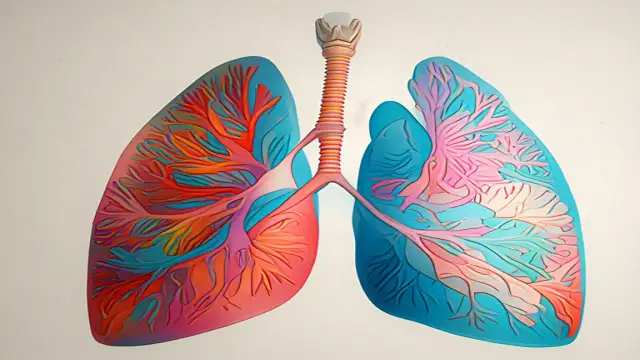As the seasons change, many people find themselves battling phlegm in their lungs. This can be uncomfortable and may last for weeks if not treated properly. Fortunately, traditional Chinese medicine offers effective solutions, including acupuncture, herbs, and food therapy. Let’s explore how these methods can help you recover quickly.
Understanding Phlegm in the Lungs
A chest cold can be a real nuisance. It often comes with a persistent cough and can linger if not addressed. In Chinese medicine, the lungs are linked to the metal element, which is associated with the color white and spicy flavors. Foods that are white or spicy can be beneficial for lung health.
Home Remedies to Try
When you first notice symptoms, it’s essential to act quickly. Here’s a simple home remedy to help you sweat out the cold:
Ingredients:
- 3 slices of fresh ginger
- 2 cloves of garlic
- 3 green onions (scallions)
- Water
- A small spoonful of miso paste
- Ground pepper (optional)
Instructions:
- Boil the ginger, garlic, and green onions in a pot of water for 10–15 minutes.
- Strain the liquid and mix in the miso paste.
- Add ground pepper if desired.
- Drink it warm, then bundle up and rest.
This spicy broth can help clear phlegm from your chest. Additionally, incorporating pears into your diet can nourish your lungs and provide a tasty treat.
Foods to Avoid
Certain foods can worsen phlegm conditions. It’s best to steer clear of:
- Juices
- Heavy, greasy, or fried foods
- Ice cream
- Sugary items (including high fructose corn syrup)
- Milk and processed foods
- Candy
When you’re feeling unwell, it’s crucial to nourish your body. Avoiding junk food and prioritizing rest can significantly aid your recovery.
The Role of Antibiotics
Some people may resort to antibiotics to clear phlegm, especially if it’s infected. While antibiotics can be effective, they come with drawbacks. They kill both harmful and beneficial bacteria in your body. This can lead to digestive issues and low energy after the phlegm clears.
To counteract this, consider taking a high-quality probiotic supplement after finishing antibiotics. Foods like yogurt, kefir, miso, and kimchi can also help restore good bacteria in your gut.
The Power of Acupuncture and Herbs
While antibiotics are powerful, their overuse has led to the rise of “superbugs,” which are resistant to treatment. This is a growing concern in modern medicine. In contrast, acupuncture and Chinese herbs have been used for thousands of years without causing such issues.
Chinese medicine offers a gentle and effective approach to treating colds and phlegm. Many people are turning to these methods as their first line of defense when they feel unwell.
Why Timing Matters
The sooner you address phlegm, the quicker you can recover. Early intervention is key to resolving symptoms and returning to a healthy, phlegm-free life.
Additional Tips for Recovery
- Stay Hydrated: Drink plenty of fluids to help thin mucus.
- Rest: Your body needs time to heal, so prioritize sleep.
- Steam Inhalation: Inhaling steam can help loosen phlegm in your lungs.
- Humidifier: Using a humidifier can add moisture to the air, making it easier to breathe.
Conclusion
Phlegm in the lungs can be bothersome, but you don’t have to suffer. With the right approach, including acupuncture, herbs, and dietary changes, you can find relief. Remember to act quickly and treat your body well. By doing so, you’ll be on your way to a healthier, happier life without phlegm.
By following these tips and utilizing the wisdom of traditional Chinese medicine, you can effectively combat phlegm in your lungs and enjoy a speedy recovery.

